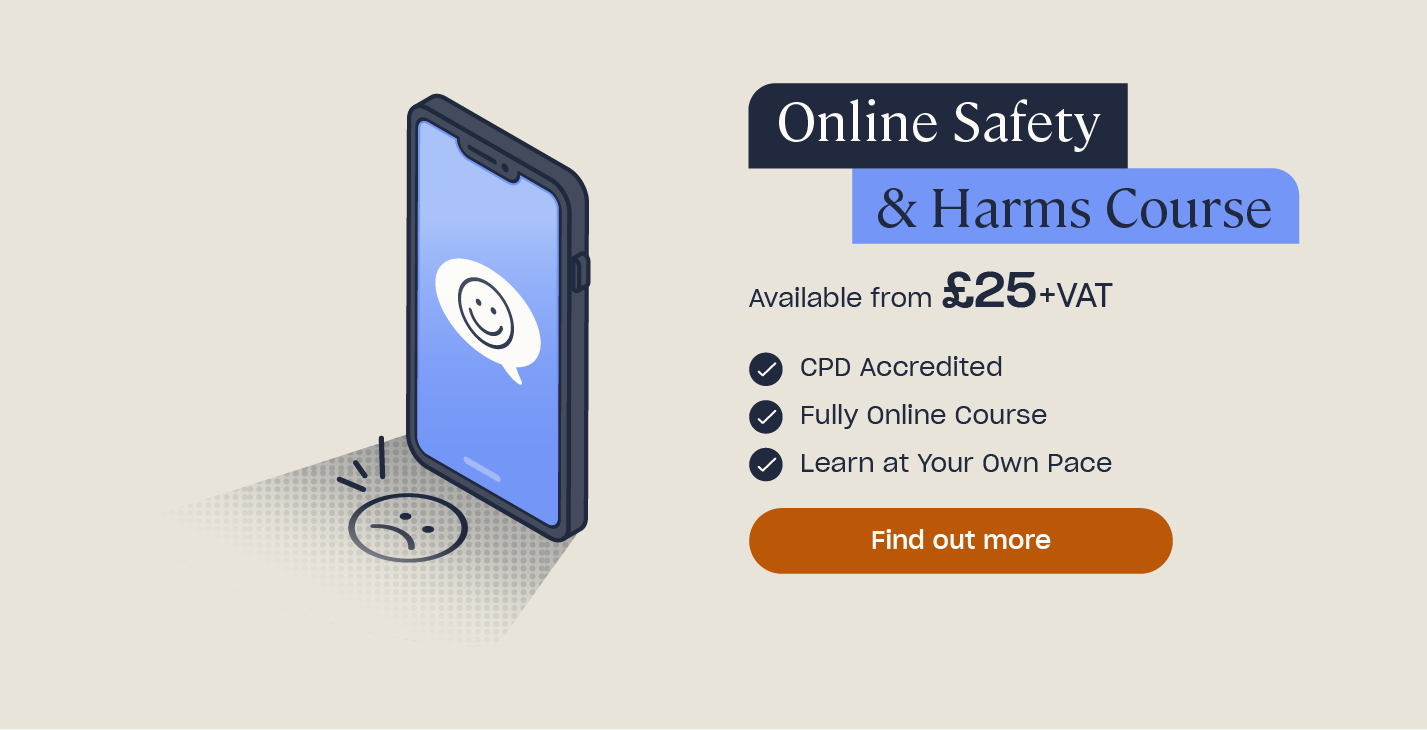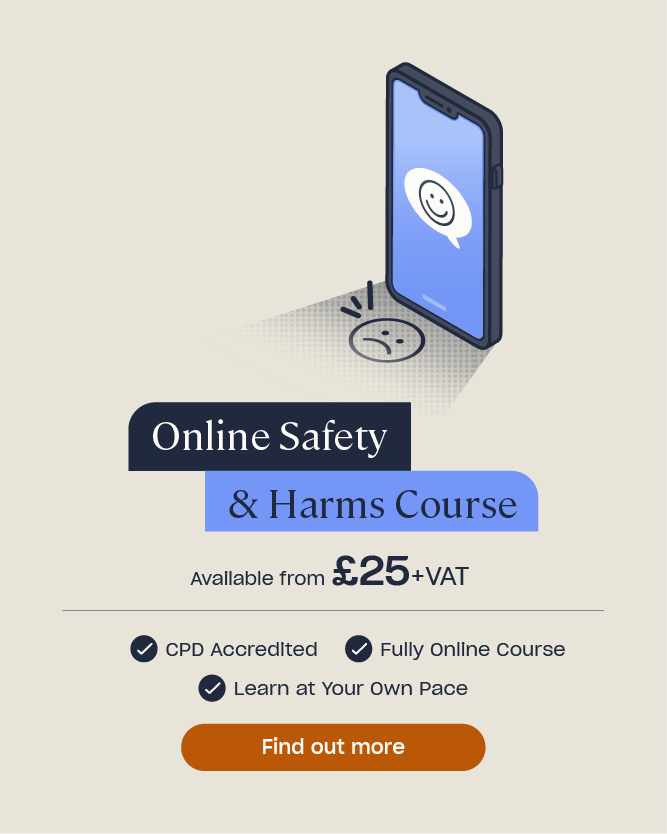How to Explain Internet Safety to a Child
In today’s world, the vast majority of children grow up as ‘digital natives’ who instinctively use the internet daily for social, educational and entertainment purposes, as well as others. Although the internet has many benefits that can help enrich a child’s life, there are also many risks associated with being online.
Despite having an intrinsic understanding of how to access and use the internet, children may not fully comprehend the dangers associated with this; Therefore, having open discussions around internet safety and its importance is vital to help protect them.
In this article, we will define what internet safety is and why it is so important, discuss how you can talk about internet safety with children, and provide actionable tips to ensure that you feel equipped to effectively support your child online.
What is Internet Safety?
Internet safety refers to the act of staying safe online and being aware of risks such as cyberbullying, scams, and spyware. It involves ensuring that your personal data and wellbeing is protected whilst using the internet.
Understandably online safety and security can feel overwhelming nowadays, particularly when trying to protect children. We all have access to so many forms of technology, containing a multitude of apps, websites, online slang, abbreviations, and emojis, that it can seem difficult to keep up with and identify the potential dangers associated with each.

Why is Internet Safety Important?
The internet can be of great value to children, giving them easy access to information that can help them develop their knowledge and learn new skills, as well as having positive social impact. It’s important to keep in mind, however, that these benefits come with safety risks that cannot be ignored.
Dangers of the Internet for Children
Cyberbullying
43% of teens have been victims of cyberbullying in the last year, but only 1 in 10 will inform a trusted adult of their abuse. Cyberbullying is the most common form of bullying, and involves posting or sharing negative, harmful, false, or mean content about someone else online. Find information on how to avoid digital abuse in our article on How to Teach Children About Healthy Relationships.
False Information
The internet is a valuable tool for finding information, but because anyone is able to post or share information online it can be difficult to know what is trustworthy. There is lots of content on the internet that is simply false and may be designed to manipulate or distort the truth. This can be dangerous, especially to children who are still highly impressionable.

Scams/Phishing
Scams aim to trick internet users into divulging sensitive data, such as banking details or passwords, or downloading dangerous malware. Phishing is a form of scam where cybercriminals send emails or messages that appear genuine but actually contain harmful content.
Dangerous Online Challenges
The increasing popularity of social media has led to a craze in completing online challenges, in which individuals record themself completing a challenge and then share the video online. Many of these challenges are simply fun and light-hearted, but others can be harmful, and in extreme cases children have even died from attempting dangerous activities online. Often, young people may not perceive the risks involved in a challenge before attempting it, or may feel peer pressured to participate. To learn more, read our article on the subject here.
Malware
Malware is harmful software that can be downloaded unknowingly, as it often masquerades as something innocent, such as a game. Malware can allow someone to access personal information or damage your device by corrupting it.
Looking to Learn More?
Our Online Safety and Harms course is designed to teach you everything you need to know about the potential online risks and harms children face, how to recognise signs that might indicate online harm or abuse, and how to effectively address online safety.
How to Talk to Your Child About Internet Safety
The best way to help ensure your child’s safety online is to talk to them regularly about their online life. It’s important that as a parent you understand what websites and apps your child engages with online, and who they’re speaking to, as well as giving your child a good foundational knowledge of the risks and dangers they could encounter on the internet. Some good conversation starters you could use to begin the discussions include:
- Ask your child what they enjoy doing online, which websites they visit the most, and if they have any games or online activities they play regularly. Ask if they’d like to play their favourite online game with you.
- Ask about how they stay safe online, what safety tips they have for you, and what they think is okay or not okay to share on the internet.
- Ask them if they know where to go for help. Do they know how to find safety advice and privacy settings online, and how to report or block people on social media?
- Discuss how you each use the internet and if there are any ways in which you could use it together, for example enjoying online activities as a family.

Whilst it can feel uncomfortable to have these conversations with your child, trying to incorporate them into your daily communication in the same way you’d enquire about their day at school, for example, can create a more relaxed and open environment for discussion. This also increases the likelihood that they’ll feel comfortable coming to you if they have any concerns.
How to Approach Difficult Conversations
There may come a time where you have to broach an uncomfortable topic with your child, for example if they’ve viewed inappropriate or distressing content, or are being bullied, online. These conversations, although extremely important, are often especially difficult as they can elicit feelings of embarrassment, shame, or fear. Here are some useful things to keep in mind to help discuss uncomfortable subjects successfully:
- Remain calm and non-judgemental.
- Try to avoid approaching the subject head-on. Instead, consider taking a subtler approach, such as asking if it’s something they’ve heard discussed before at school or amongst friends.
- Give your child space to speak openly. Don’t interrupt, even if there’s a period of silence. Your child may need time to consider how to respond.
- Provide explanations for why certain things are wrong, such as age appropriateness and illegality, so that your child can better understand the situation.

Internet Safety Tips for Parents
Although keeping an open line of communication with your child about online safety is essential, there are many other actionable ways to help protect your child from the risks and dangers of the internet. Here are a few of our expert tips to help you support your child in accessing the online world safely.
Keep up to date with social media features
There are several different social media platforms that are popular amongst young people, and with new apps and services being introduced all the time, it’s important to stay updated with your child’s changing internet habits.
Every social media platform has dedicated safety features designed to protect its users. We’ve created Parents’ Guides for five of the most popular social media apps to help you assess potential risks, learn about how each platform works, and explore the safety features available on each.
Create rules and boundaries
Whilst it can be beneficial for children to have access to all the educational and social opportunities that the internet offers, setting some guidelines can go a long way to keeping your child safe online.
There are plenty of parental controls and privacy settings that you can utilise to help steer your child away from the more dangerous parts of the internet. These include setting screen time restrictions, filters that limit access to specific websites or keywords, and monitoring your child’s online activity.

Understand ‘hidden’ online language
Texts, instant messages, social posts and comments now make up a large part of our daily communication, and the short nature of these formats have resulted in emojis and abbreviations becoming a popular way to convey meaning, tone, and humour quickly.
However, this complex use of emojis and abbreviations has resulted in a ‘hidden language’ amongst young people of which many adults may not be aware, and which can cause dangers to go unnoticed. We’ve created a comprehensive guide containing common alternative meanings for emojis, and some text abbreviations that might indicate a safeguarding risk.
Be a good role model
Children learn by example and absorb everything they see around them, so in order to encourage safe internet use for your child you must also follow the same advice that you’re giving them and model good online behaviour.
Part of this behaviour lies in how you choose to share your children online. We conducted research into how the nation chooses to share photos of, and information about, their children on social media in our article on Sharenting: Your Guide to Safeguarding Your Children Online. Here, you can find our top tips for using social media as a parent in the modern world.
Know where to go for help
The online world is so vast that internet safety issues can often feel overwhelming, and it’s normal to feel like you can’t tackle every concern yourself. Luckily, there are plenty of places you can go to for advice and where your child can find options for further support.
Remind your child that they can seek advice from any trusted adult as well as yourself, including their teachers or other close relatives. If you need more professional support, protection services such as the NSPCC or the UK Safer Internet Centre offer a helpline, as well as advice on where to report various safety concerns.
With the online world increasingly becoming a part of our daily reality, it’s more important than ever to educate your child on the risks that come with using the internet. It’s crucial that you and your child discuss the potential dangers that threaten their safety online, and know how to detect and deflect hazards, as well as where to turn to for help if they do fall victim to online misconduct.
Further Resources:
- Parents’ Guides to Social Media Apps
- Internet Gaming Safety: Tips for Parents
- Safeguarding Children in Sport: A Quick-Start Guide for Parents
- Online Safety and Harms Quiz
- How Much Do You Know About Internet Safety? KS2 Quiz
- Internet Safety Posters for Schools
- Mobile Phones in Schools Debate: Advantages and Disadvantages
- Online Safety & Harms Course











